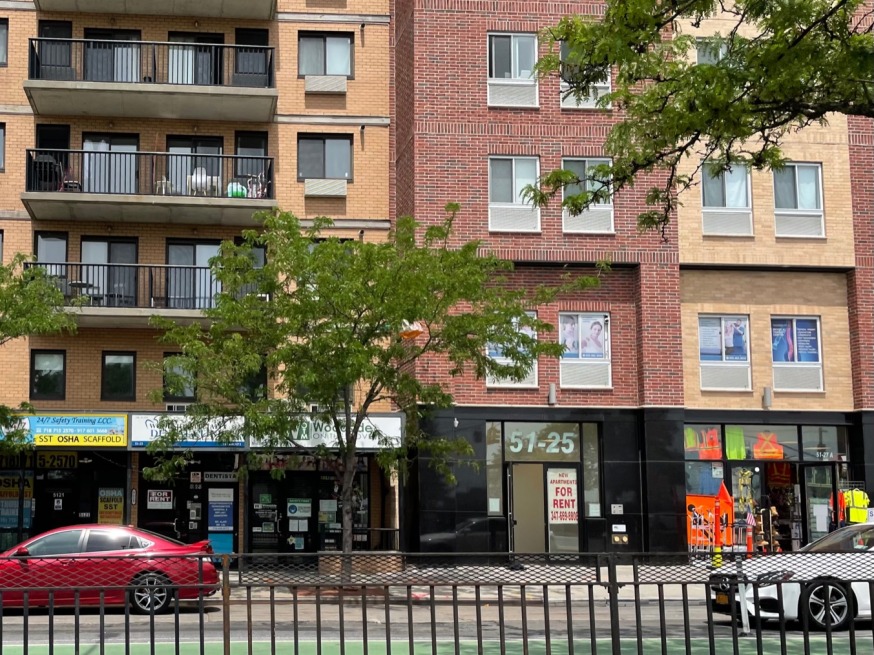
Apartment building in Woodside (Photo: Queens Post)
June 1, 2021 By Christina Santucci
New Yorkers who are behind on their rent and have suffered financial hardship due to COVID-19 can submit applications for rent relief starting Tuesday, the governor announced.
Those eligible and approved by the program can receive funding to cover up to 12 months in past due rent – as well as up to 12 months of utility arrears – accrued after March 13, 2020.
Eligible households could also collect up to three months of additional rental assistance – if their family spends 30 percent or more of its gross monthly income on housing.
Officials said that during the first 30 days the program will prioritize the unemployed, those with income at or below 50 percent of Area Median Income (AMI) – for example $53,700 for a family of three or $59,650 for a family of four – and other vulnerable residents.
More information about those prioritized in the first 30 days is available online.
After that initial period, applications will be processed on a first-come, first-served basis – as long as funding is available.
The rental assistance program is funded by $2.6 billion from the federal government and $100 million of state funding, the governor’s office said.
Payments are made directly to the landlords, property owners and utility companies on behalf of the residents who qualify for the program. In order to receive funding, landlords must agree to waive any late fees due on past-due rent and not increase the tenant’s monthly rent or evict them for one year – except in limited circumstances.
To be eligible, households must meet all of these criteria:
- •Household gross income is at or below 80 percent of the Area Median Income (AMI) – for example, that would be about $85,950 for a family of three or $95,450 for a family of four.
- •A member of the household received unemployment benefits or had reduced income, significant costs or financial hardship due to the COVID-19 pandemic – on or after March 13, 2020.
- •The applicant has rent overdue from on or after March 13, 2020.
- •The household must be at risk of experiencing homelessness or housing instability, which can be shown by owing rent from on or after March 13, 2020.
Tenants should have identification for all members of their household, the social numbers of family members who have them, and proof of the rental amount, residency and income. Those who are applying for help paying for their owed utilities should also have copies of their gas or electric bills.
Landlords will also need to provide a number of documents detailed on the program’s website.
There are no immigration status requirements to qualify for rental assistance, and New Yorkers who use Section 8 vouchers and live in NYCHA housing can also apply.
The application will be available online beginning at 9 a.m. Tuesday, and those interested in applying can also call the state hotline at 844-691-7368 for more information.
The state is also partnering with community-based organizations to assist with the program – including three in Queens – to provide outreach and application assistance in multiple languages to potential recipients.
The organizations that provide services in Queens are: Korean Community Services of Metropolitan New York, Inc,RiseBoro Community Partnership, and Catholic Charities Neighborhood Services (CCNS).
New York state previously held two rounds of rental assistance, and as of October 28, about $6.3 million had been distributed in the first round on behalf of tenants in Queens. The average amount received by borough residents was $2,561, according to a report published by the state Department of Housing and Community Renewal (DHCR).
However, that initial round was criticized for shutting out thousands of New Yorkers with restrictive requirements. The City reported that only 15,022 out of about 94,000 applicants statewide were approved for funding as of October 28.
A second application period – which provided a one-time rental subsidy to landlords on behalf of eligible households – ran from Dec. 18 through Feb. 1.
